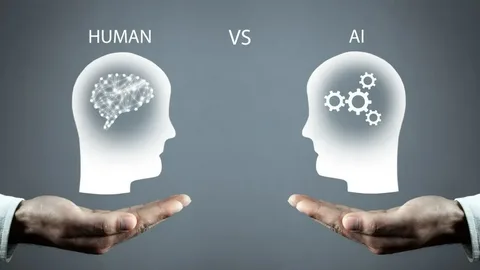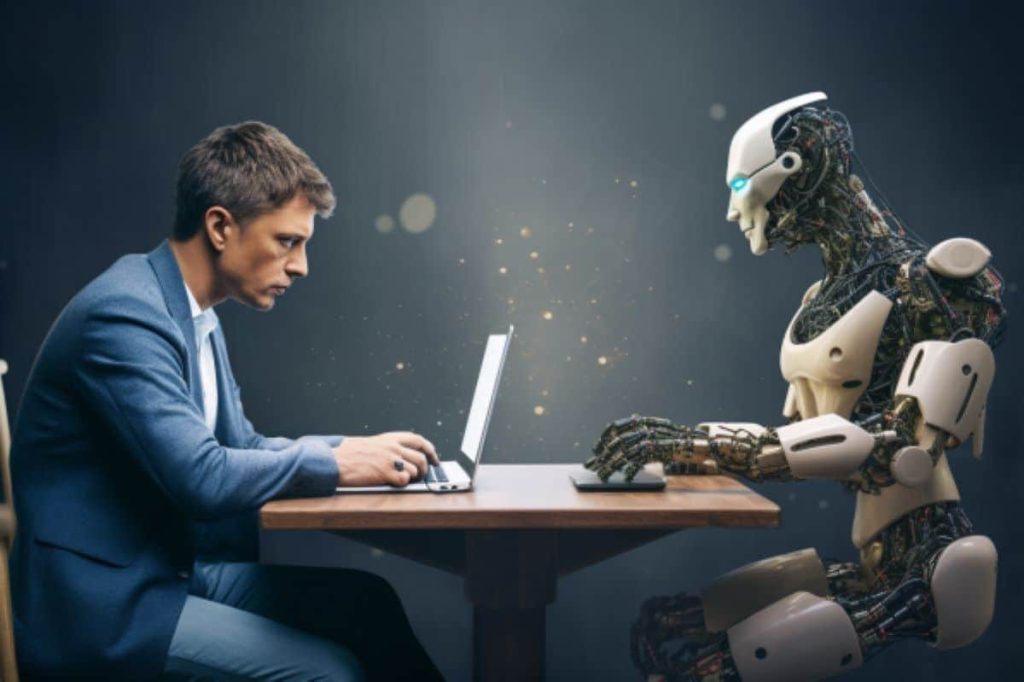Explore the differences between AI and human decision making, their strengths, limitations, and the future of human-AI collaboration in critical choices.
Introduction
Decision making shapes businesses, healthcare, finance, and everyday life. From choosing investment strategies to diagnosing diseases, the ability to make the right decision at the right time is crucial. With the rise of artificial intelligence (AI), the question of AI vs human decision making has become increasingly relevant.
Can AI replace human judgment, or should it only support it? While AI provides speed, accuracy, and data-driven insights, humans bring emotional intelligence, ethics, and creativity to the table. This article dives deep into the differences between AI and human decision making, highlighting their strengths, limitations, and how the future may rely on a synergy of both.

Understanding AI Decision Making
What Is AI Decision Making?
AI decision making refers to the use of algorithms and machine learning models to process data, identify patterns, and recommend or execute decisions. Unlike humans, AI relies on structured logic and data rather than subjective interpretation.
Examples include:
- AI-driven medical imaging that detects tumors faster than doctors.
- Financial trading bots that analyze millions of data points in real-time.
- Recommendation engines like those used by Netflix and Amazon.
Strengths of AI in Decision Making
AI excels in scenarios where large datasets and rapid analysis are required. Some of its key advantages include:
- Speed and Efficiency: AI can analyze thousands of data points in seconds.
- Accuracy: AI reduces human error by basing outcomes on data rather than guesswork.
- Scalability: AI systems can handle tasks across industries without fatigue.
- Consistency: Decisions are not influenced by emotions, fatigue, or personal biases.
Limitations of AI in Decision Making
However, AI is not without its drawbacks:
- Lack of Emotional Intelligence: AI cannot interpret human emotions or social contexts effectively.
- Bias in Data: If trained on biased datasets, AI decisions can reinforce inequality.
- Ethical Concerns: AI lacks moral reasoning and cannot make ethical judgments.
- Dependence on Data: Without accurate and complete data, AI systems fail.
Human Decision Making
What Defines Human Decision Making?
Human decision making is influenced not only by logic but also by emotions, values, culture, and intuition. It is less predictable than AI-driven decision making but often more adaptable in complex and uncertain scenarios.
Examples include:
- A doctor comforting and treating a patient based on both medical history and empathy.
- A business leader pivoting strategies during a crisis based on intuition and experience.
- A teacher adjusting lesson plans based on the mood of students.
Strengths of Human Decision Making
Humans bring qualities that machines cannot replicate:
- Emotional Intelligence: Ability to read emotions, empathize, and make compassionate choices.
- Creativity and Innovation: Humans excel at generating new ideas and thinking outside the box.
- Ethics and Morality: Humans can weigh the moral consequences of decisions.
- Adaptability: Humans can function even with incomplete or conflicting information.
Limitations of Human Decision Making
Despite these strengths, human decision making has flaws:
- Cognitive Biases: Decisions are often influenced by prejudice, stereotypes, or overconfidence.
- Emotional Influence: Stress, fear, or excitement can cloud judgment.
- Limited Data Processing: Humans cannot process large-scale data as efficiently as AI.
- Inconsistency: Decisions may vary depending on mood, health, or environment.
AI vs Human Decision Making: A Comparative Analysis
| Aspect | AI Decision Making | Human Decision Making |
|---|---|---|
| Speed | Instant, data-driven | Slower, relies on experience and analysis |
| Accuracy | High, if data is clean and unbiased | Varies, prone to error and subjectivity |
| Emotional Intelligence | Absent | Strong, empathy-driven |
| Creativity | Limited to data and algorithms | High, driven by imagination and intuition |
| Ethical Reasoning | Lacks moral compass | Can evaluate ethical and cultural implications |
| Adaptability | Struggles with ambiguity | Strong in uncertain and dynamic situations |
Real-World Examples of AI and Human Decision Making
Healthcare
- AI: IBM Watson can analyze medical journals to recommend cancer treatments.
- Human: Doctors provide empathy, explain risks, and consider patient values.
Finance
- AI: Automated trading systems outperform humans in speed and precision.
- Human: Financial advisors assess client needs, goals, and emotions.
Customer Service
- AI: Chatbots handle basic queries instantly.
- Human: Customer service reps handle complaints with empathy and nuance.
The Future: Collaboration Between AI and Humans
Instead of AI replacing humans, the future lies in collaborative decision making. Businesses and governments are already adopting hybrid models where AI handles data-heavy tasks while humans oversee ethical, creative, and empathetic decisions.
Key Areas of Human-AI Collaboration
- Healthcare: AI diagnoses, humans treat and counsel patients.
- Business Strategy: AI forecasts trends, humans innovate solutions.
- Education: AI personalizes learning, teachers provide guidance and emotional support.
- Law and Governance: AI analyzes case data, judges interpret laws with ethical considerations.
Best Practices for Balancing AI and Human Decisions
To leverage both AI and human strengths, organizations should:
- Ensure transparency in AI systems.
- Train employees to work alongside AI tools.
- Develop ethical AI frameworks.
- Use AI for data-heavy tasks while keeping humans in the decision loop.

Conclusion
The debate over AI vs human decision making is not about competition but collaboration. AI offers speed, accuracy, and data processing power, while humans bring creativity, empathy, and ethical reasoning. The future lies in a balanced approach where AI supports human judgment, creating decisions that are not only smarter but also fairer and more compassionate.
As industries evolve, the winning formula will be AI + Human Intelligence, ensuring the best of both worlds.
Internal Link
- [AI applications in healthcare]
- [Best AI chatbots for customer support]
- [AI trends 2025]